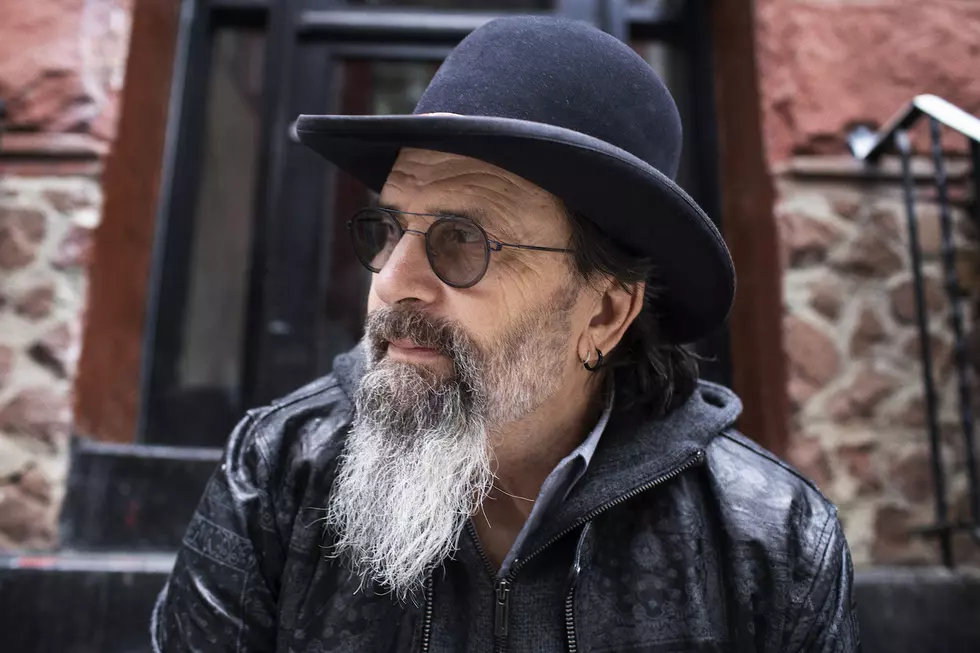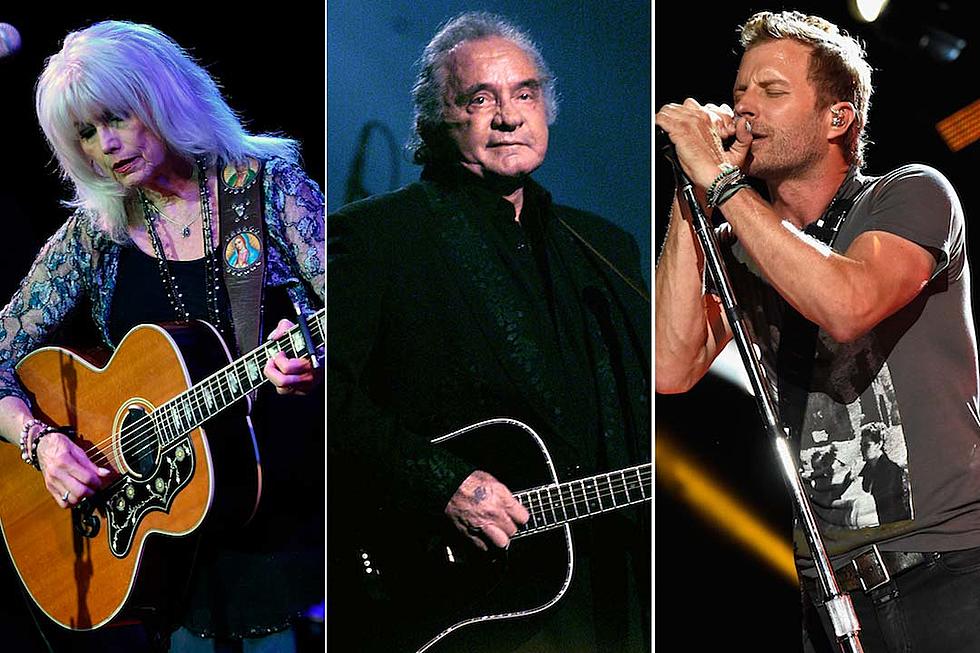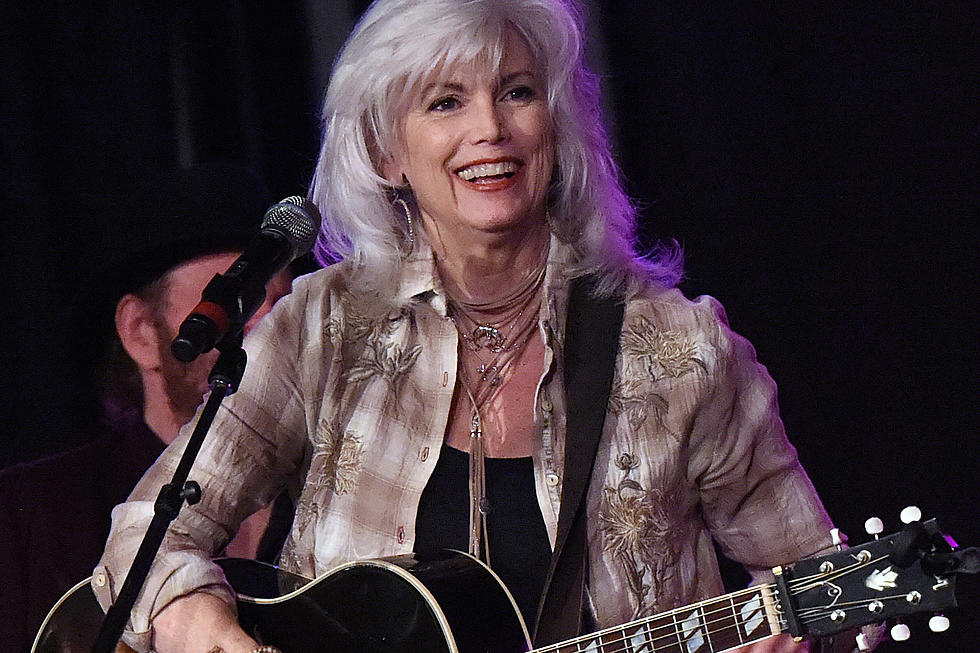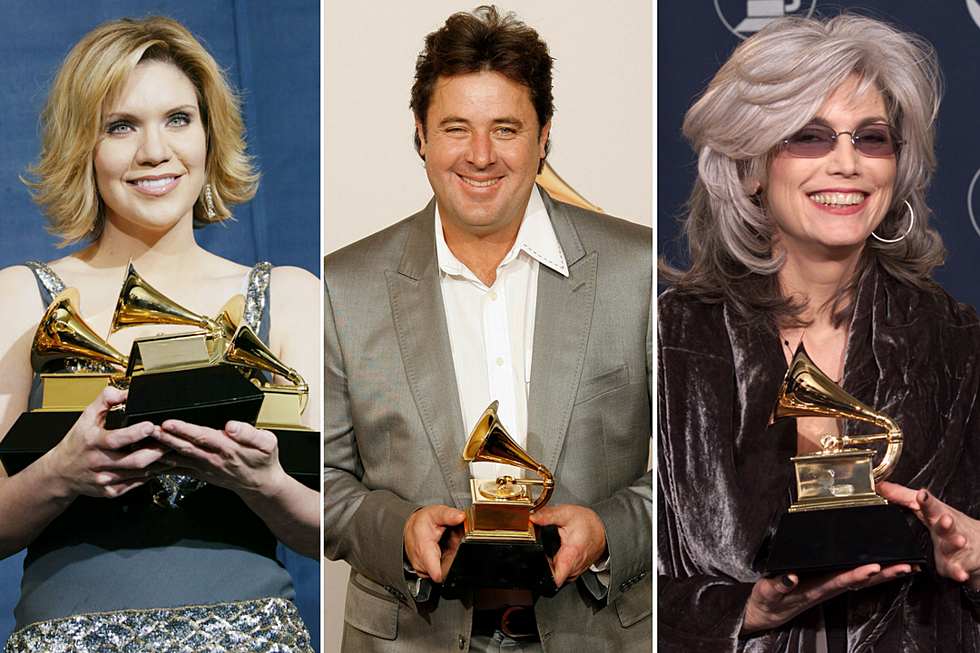
11 Songs That Helped Define Alt-Country in the 1990s
There's no question that alt-country existed long before the 1990s: Consider Neil Young's masterpiece Harvest, released in 1972, or the Mekons' Fear and Whiskey, Green on Red's Gas Food Lodging and Jason & the Scorchers' Lost & Found, all of which dropped in 1985. But while the genre is so hard to define, alt-country seemed to find its groove in the '90s, amidst the meteoric rise of grunge and alternative rock.
The launch of the Americana radio chart and the seminal journal No Depression in 1995 helped bring more attention to artists who would otherwise go unnoticed by the broader industry. Since the '90s, alt-country has only grown in its stature while becoming even harder to elucidate, though: The first Americana Music Festival & Conference was held in 2000, and 10 years later, the National Academy of Recording Arts and Sciences created the Grammy Awards category of Best Americana Album.
While these are just a couple of examples of milestones that will forever stand as huge steps forward for music fans, they only add to the broadness of the genre. Is alternative country the same as Americana? Where do bluegrass and folk fit in? What makes alt-country truly alt? When words won't come close to doing justice to answering those questions, or even to defining the genre itself, we turn to the music.
If the '90s stand out as one of the most formative decades for alt-country, then there must be a catalog of songs from that time period that serve to define the genre. The pool of choices is wonderfully deep and wide, but we feel these 11 songs perfectly capture what makes alt-country so special. While you may not agree that every song deserves a spot on this list, we hope you'll agree that alt-country deserves its place cemented firmly in the history books.
- 11
"Feel Alright"
From Steve Earle's 'I Feel Alright' (1996)When trying to define alt-country, it would be easy to make a list of songs only by Steve Earle. The man is a living legend who has been making music since the early '80s. He's a modern-day outlaw, and he helped create the iconic alt-country sound of the '90s through albums such as Train a Comin' and El Corazón. But he shined brightest on 1996's I Feel Alright, and there's no better tune on the album than the title track. Combining rock and roll with Earle's gritty country, "Feel Alright" is unmistakably his pièce de résistance, and is the first of the 11 songs that we think perfectly define alt-country.
- 10
"I'm Over You"
From the Silos' 'The Silos' (1990)Formed by Walter Salas-Humara in the mid-'80s, the Silos gained notoriety when they made their network television debut in 1990. Performing "I'm Over You" on Late Night With David Letterman, Salas-Humara and company introduced the country to what fans already knew so well: The Silos are absolute masters at telling stories through their unforgettable and unique sound. We couldn't ask for a better song to kick off the decade than "I'm Over You."
- 9
"Sweet Old World"
From Emmylou Harris' 'Wrecking Ball' (1995)Like several artists on this list, you could define alt-country purely through the singular work of Emmylou Harris. Wrecking Ball is arguably one of the greatest efforts of her nearly 50-year career, and "Sweet Old World" might just be one of the most beautiful tracks we've ever heard. Lucinda Williams wrote the song, which first appeared on her album of the same name in 1992. For Harris's cover, Steve Earle and Williams join her on acoustic guitar while Neil Young plays the harmonica, forming, for at least a few minutes, an alt-country supergroup.
- 8
"Victoria"
From Old 97's' 'Wreck Your Life' (1995)One of the defining marks of alt-country music is its lyrics; our favorite artists not only create the perfect rockin' country sound, they also craft unforgettable stories embedded in their songs. Rhett Miller, Ken Bethea, Murry Hammond and Philip Peeples have been doing just that since they formed Old 97's in 1993, and it's perhaps best showcased in the opening track to Wreck Your Life, "Victoria." We'll stop writing and let you hear why this tune made it onto this list.
- 7
"Welfare Music"
From the Bottle Rockets' 'The Brooklyn Side' (1994)How do you pick just one track from St. Louis' Bottle Rockets for this list? After all, they helped create the '90s sound of alt-country when Brian Henneman, Mark Ortmann and company joined forces in 1992. Though they're still making some of the most inspiring work of their career today, no fan can overlook the earth-shaking contribution of The Brooklyn Side, packed with track after track of pure alt-country delight. Whether it's the all-too-familiar story of "Radar Gun" or the instantly classic "I'll Be Comin' Around," The Brooklyn Side is an album every music fan should have in their stacks. But, because we're not highlighting the entire album, we're putting our sights on "Welfare Music," a crushingly poetic and political song that takes aim at those who created the appalling myth of the "welfare queen," and a song that is, unfortunately, just as important today as it was when it was first heard in '94.
- 6
"Midway Park"
From Whiskeytown's 'Faithless Street' (1995)Ryan Adams is easily one of the most prolific singer-songwriters of our generation, and it all started in 1994, when he founded the alt-country outfit known as Whiskeytown. They released their first album, Faithless Street, in '95, and, over the next several years, released two more studio LPs, 1997's Strangers Almanac and 2001's Pneumonia. Though their "breakup" led to Adams' undeniably important — and wildly successful — solo career, it always felt as though Whiskeytown's full potential was never realized. Regardless, their offering to the world of alt-country is undeniable, and we find ourselves constantly returning to the opening track of Faithless Street, "Midway Park." A young Adams shows why he is a force to be reckoned with, and why Whiskeytown will forever be considered one of the all-time greats of the '90s.
- 5
"Drown"
From Son Volt's 'Trace' (1995)Alternative country and the 1990s will never not be associated with the work of Jay Farrar and Son Volt. To try and capture the band's significance to the movement in a matter of a few words is ineffective; from the release of their debut Trace to the work they're still putting out today, Son Volt remain one of the truest and most authentic voices in the world of alt-country. They can crank up the distortion and put together a rollickin' ballad as quickly as they can stain your eyes with tears through Farrar's haunting storytelling. If there is one song that expresses all of their work and importance in just a matter of minutes, though, it's easily Trace's "Drown." Peaking at No. 10 on Billboard's Mainstream Rock Tracks, "Drown" gave Son Volt more publicity and success than most of their comrades in the '90s, but it would end up being their only single to ever land on that chart. It doesn't matter to us, though; "Drown" will be on repeat until the day we die ... and even then, we hope it's blasting on our way off this green ball.
- 4
"Blue"
From the Jayhawks' 'Tomorrow the Green Grass' (1995)While most fans and critics point to 1992's Hollywood Town Hall as the Jayhawks' all-time greatest disc, we can't help but put our money on Tomorrow the Green Grass from 1995 as being the best thing the Minneapolis-bred band created. The album is non-stop perfection, and each track seems to build on the momentum of the previous. The one that sets the foundation, though, is the opening tune, "Blue." Written by Mark Olson and Gary Louris, it's a beautiful and immediately catchy tune that somehow sounds as fresh today as it did in 1995. If you ask us for a song that sounds like '95, we can't help but immediately hand you "Blue" on a silver platter.
- 3
"Pass You By"
From Gillian Welch's 'Revival' (1996)Gillian Welch made one of the strongest debuts of the '90s with her now-legendary Revival, produced by T Bone Burnett; it's also the studio debut of her work with David Rawlings. When Rolling Stone first reviewed the album, Ann Powers said, "Gillian Welch doesn't play rock music, but the determination with which she has cast herself into a role that by no right belongs to her shows pure rock attitude." While that might seem like a strange way to compliment an artist, it was the perfect description of Welch's debut, and a hint of what was to come with her and Rawlings. They might not play rock music, but they sure as hell are rock 'n' rollers. Don't just take our word for it, though — listen to the genre-defining "Pass You By" for yourself.
- 2
"No More Buffalo"
From James McMurtry's 'It Had to Happen' (1997)There may only be one other band more influential in and important to alt-country than James McMurtry. The son of the great Western novelist Larry McMurtry, James began his music career with the brilliant John Mellencamp-produced Too Long in the Wasteland in 1989. Throughout the '90s, McMurtry would continue securing his place as one of the defining voices of alt-country as he released Candyland and Where'd You Hide the Body. Then, when he signed with Sugar Hill Records, he released his then-crowning achievement with 1997's It Had to Happen.
Though you could pick absolutely any track from McMurtry's catalog as a symbol of alt-country perfection, we think "No More Buffalo" from his Sugar Hill debut is, without a doubt, the one. Since his first day on the scene, McMurtry has been a mastermind at telling stories through his songs, and "No More Buffalo" is a high point. We'll let the song speak for itself: "We headed South across those Colorado plains / Just as empty as the day / We looked around at all we saw and all we'd hoped to see / Looking out through the bugs on the windshield / Somebody said to me / No more buffalo, blue skies or open road / No more rodeo, no more noise / Take this Cadillac, park it out in back / Mama's callin', put away the toys."
- 1
"Chickamauga"
From Uncle Tupelo's 'Anodyne' (1993)Even if you've only begun to scratch the surface on alt-country, you no doubt have at least heard of the godfathers of the genre, Belleville, Ill.'s Uncle Tupelo. Their influence is beyond question: Formed by Jay Farrar, Jeff Tweedy and Mike Heidorn, the group has been inspiring singers, songwriters and bands alike since their inception and the release of their debut LP, No Depression. That album's title track became an anthem of sorts for the genre, while "Graveyard Shift" paved the way for songs such as Son Volt's "Drown" and so many other scorchers.
If the gravity of their work was ever in doubt — and really, it never was — that was all washed away with what would become their unforgettable swan song, 1993's Anodyne. Though the album followed the departure of Heidorn, it holds up as a quintessential alt-country masterpiece. Farrar and Tweedy split songwriting duties, and even recruited Doug Sahm to sing on their cover of his track "Give Back the Key to My Heart." For us, though, there's no song that better represents the 1990s alt-country scene than Farrar's "Chickamauga": The music, the lyrics and the overall performance make for an extraordinary listening experience, one that will stand the test of time for decades to come.
More From 102.3 The Bull



![Emmylou Harris, Mary Chapin Carpenter’s Joan Baez Tribute at 2021 Kennedy Center Honors ‘Represents Who She Is’ [WATCH]](http://townsquare.media/site/623/files/2021/06/MCCEmmylou.jpg?w=980&q=75)




![Nitty Gritty Dirt Band Enlist Jason Isbell, Rosanne Case + More for ‘The Times They Are a-Changin” [LISTEN]](http://townsquare.media/site/623/files/2021/02/nitty-gritty-dirt-band.jpg?w=980&q=75)

